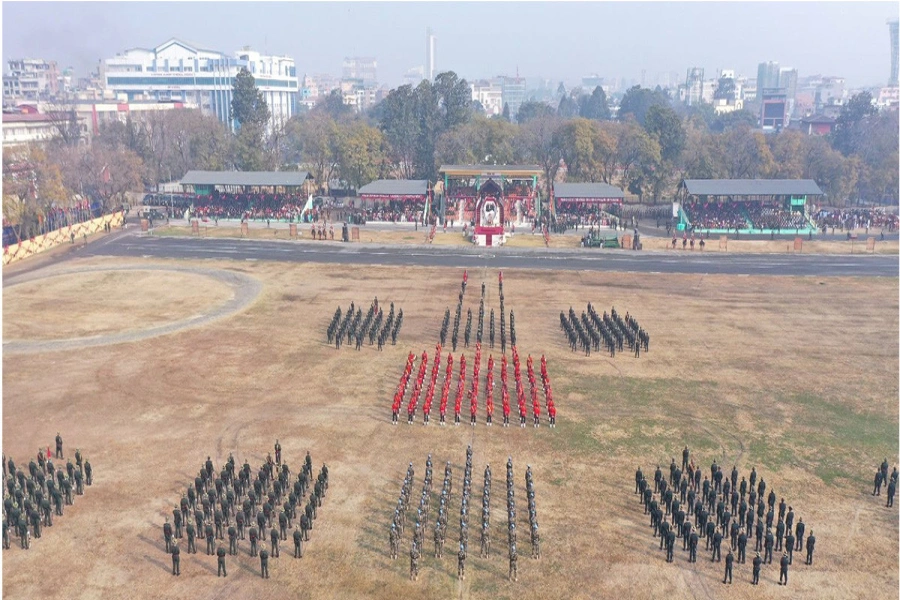Nepal awoke to the tragic news early morning on Tuesday, as the sudden demise of Subash Chandra Nembang sent shockwaves through the nation's political landscape. At the age of 70, Nembang, the chairman of the Constituent Assembly and vice chairman of the main opposition party, CPN-UML, succumbed to a heart attack at his private residence in Baluwatar, marking the end of an era in Nepali politics. Family members reported that Nembang was found unconscious in his bathroom, a devastating discovery that was followed by an immediate rush to the Tribhuvan University Teaching Hospital in Maharajgunj. Tragically, by the time he arrived at the hospital, he had already passed away. In the wake of his passing, the government has decided to bestow state honors upon him, recognizing his exceptional contributions to the nation. Furthermore, the government has declared a public holiday on the day of his funeral scheduled for Thursday, a testament to the profound impact he had on the lives of the Nepali people. His sudden departure leaves a profound sense of loss for his family, friends, and the entire nation.
As the nation mourns the loss of this remarkable leader, it is important to reflect on the significant void he leaves behind and the enduring legacy he leaves in his wake. Nembang's political career was marked by an unwavering commitment to the democratic process and an exceptional ability to bridge ideological divides. He played a pivotal role in shaping the future of Nepal, serving as the chairman of the Constituent Assembly that promulgated the country's new constitution in 2015. His contributions to the development of Nepal's democratic constitution are immeasurable, and they will continue to guide the nation's political journey for generations to come. The outpouring of grief and tributes from various political leaders, including President Ram Chandra Paudel, Prime Minister Pushpa Kamal Dahal, former President Bidya Devi Bhandari, UML Chairman KP Sharma Oli, Nepali Congress (NC) President Sher Bahadur Deuba, and CPN (Unified Socialist) Chairman Madhav Kumar Nepal, underscores Nembang's stature as a statesman who transcended party lines. UML Chairman Oli aptly described Nembang as not just a party vice-chairman but as a benevolent friend who shared in both moments of happiness and sorrow. Nembang's humility and respect for others were qualities that endeared him to leaders across the political spectrum.
President Carter leaves an enduring legacy in Nepal’s journey f...

Nembang's legacy is also distinguished by his commitment to the values of unity and consensus-building in a political climate increasingly characterized by populism and divisive aggressiveness. His ability to bring leaders with differing ideas and ideologies together to forge consensus was unparalleled. At a time when divisive aggression is on the rise in politics, the absence of a leader with Nembang's extraordinary ability to foster unity and consensus will be deeply felt in Nepal's political landscape. Nembang's role in the promulgation of the Constitution of Nepal, 2015, was pivotal, and it is likely that without his steady leadership, the process would not have proceeded as smoothly as it did. His wisdom and patience during the Constituent Assembly meetings were admired by all, even those who held opposing views. The fact that he had openly criticized the move of UML to continuously obstruct parliament meetings recently showed that he held independent views, not necessarily toeing the party’s official line. Throughout his more than two-decade-long career as a lawmaker, Nembang remained untarnished by controversy or corruption, a testament to his integrity and dedication to public service.
Nevertheless, Nembang's silence was seen as a disappointment by many of his supporters in a moment of political turbulence in the country when his party Chairman KP Oli made the controversial decision to dissolve parliament on unconstitutional grounds. However, Nembang's perceived weakness during that time is overshadowed by his numerous admirable qualities. He will be remembered as a dignified politician with wisdom and restraint, not as a weak leader. His long political career remains untainted, a stark contrast to the controversies that plagued many of his contemporaries who held legislative positions after him. The legacy of Subash Chandra Nembang, a leader who consistently stood for unity and consensus in a polarized political environment, will continue to shine brightly. His sudden departure has created a void that will be challenging to fill, especially at a time when divisive aggression is becoming increasingly prevalent in politics. Nembang's legacy will serve as a reminder of the importance of leadership that transcends party lines and fosters unity for the greater good. His passing away is an irreparable loss for Nepali politics. His legacy as a unifying force and a statesman of unwavering integrity will be felt for generations to come. As Nepal mourns the departure of this extraordinary leader, we extend our heartfelt condolences to his family and loved ones. Nembang's memory will forever be etched in the annals of Nepal’s political history, a shining example of leadership guided by wisdom, humility, and the pursuit of unity and consensus.






































